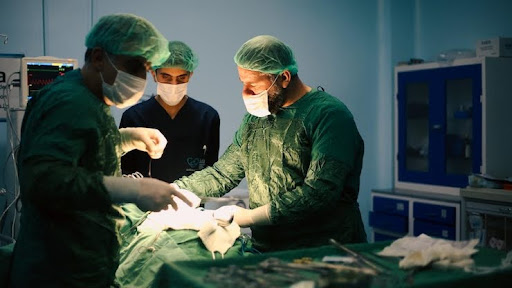Why ASCs Are Transforming the Future of Surgery

Outpatient surgical centers, better known as Ambulatory Surgery Centers (ASCs), are rapidly changing how Americans experience healthcare. With shorter wait times, reduced costs, and streamlined services, ASCs are now becoming a preferred choice over traditional hospital settings. But what exactly sets these centers apart? And why are more patients and providers leaning into this model?
Let’s explore how ASCs are reshaping the surgical landscape and why this shift may benefit you more than you think.
What Makes ASCs Different from Hospitals?
Unlike hospitals, ASCs are specifically designed for same-day surgical procedures. Patients arrive, undergo surgery, and return home within a few hours. This operational efficiency allows ASCs to focus solely on delivering high-quality outpatient care without the logistical challenges of a full-service hospital.
According to the Ambulatory Surgery Center Association, procedures performed in ASCs are often 45-60% less expensive than the same treatments conducted in hospitals. This cost savings is significant for both insured patients and those paying out-of-pocket.
Efficiency That Improves Outcomes
One of the standout features of ASCs is their emphasis on operational efficiency. With a narrower scope of services and fewer emergency interruptions, procedures in ASCs are more likely to start on time and avoid unnecessary delays. This consistency often leads to better patient outcomes and a higher level of satisfaction.
The streamlined environment also allows surgical teams to specialize in specific procedures, further enhancing skill and precision. It’s no surprise that many providers report higher procedural volumes and fewer complications in ASC settings.
For a closer look at how ASCs compare to hospital-based surgeries, especially in terms of cost and efficiency, read this guide on the Hospital Operating Room and how it stacks up against modern surgical centers.

Patient Experience Is at the Heart of ASCs
Beyond efficiency, one of the biggest draws of ASCs is the personalized experience they offer. Smaller staff-to-patient ratios and focused care environments mean patients receive more attention and support throughout the surgical process.
Patients typically report less stress and faster recovery in an ASC, in part because these centers minimize the exposure to infections and other hospital-related complications. Plus, the ability to recover at home the same day adds a level of comfort that traditional hospitals struggle to match.
This focus on individualized attention is a major reason why many patients are choosing the personalized care of an ASC for elective and outpatient procedures.
Are ASCs Safe for All Surgeries?
While ASCs are ideal for many outpatient procedures such as cataract removal, colonoscopies, joint repairs, and certain spine surgeries, they are not suitable for every situation. Complex surgeries requiring intensive post-op care or involving high-risk patients are better handled in hospitals.
That said, ASCs are highly regulated and held to strict safety standards by both federal and state agencies. In fact, studies show that ASCs often have lower complication rates compared to hospital settings for the procedures they do perform.
Before scheduling surgery, patients should consult with their healthcare providers to determine whether an ASC is the right setting for their procedure based on medical history and surgical needs.
Financial Benefits for Patients and Providers
Cost savings isn’t just about the procedure itself. ASCs often have simplified billing processes, transparent pricing, and fewer administrative fees. This results in fewer surprise medical bills and greater financial predictability.
From a provider’s standpoint, ASCs allow for better control over scheduling, staffing, and patient care models. These factors contribute to both improved workflows and job satisfaction for healthcare professionals.
Conclusion: A Smarter Approach to Modern Surgery
ASCs are not just an alternative—they’re an advancement in how we think about surgery. With their focus on cost efficiency, improved patient experiences, and high safety standards, ASCs are setting a new benchmark for outpatient care.
As healthcare continues to evolve, the role of ASCs will only expand. Patients seeking affordable, efficient, and personalized surgical care may find that ASCs are the right fit for their needs. It’s clear that the conversational-style shift toward outpatient surgical centers is not just a trend—it’s a smarter way forward.